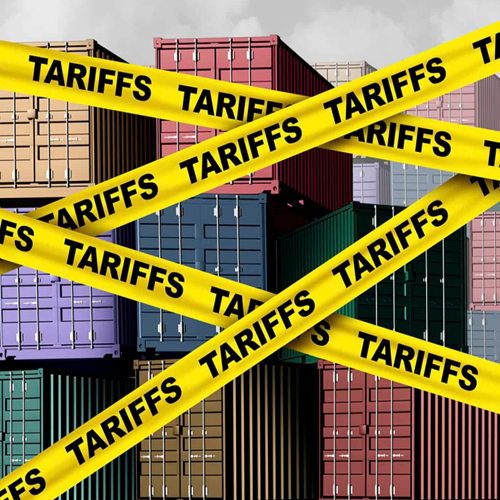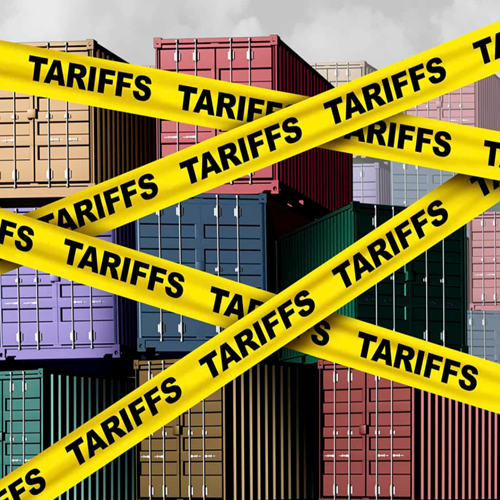Posted Tue, Oct 27, 2020 10:33 AM
Economic and Policy Review, January - June 2020
Abstract
The global economy started the year 2020 with hopes of gradually reducing trade tensions reflected by a partial trade deal reached by the United States and China. The IMF earlier projected that global GDP would expand by 3.3% in its World Economic Outlook for 2020 released in January. Meanwhile, the world was caught unawares by the sudden outbreak of
COVID-19 in Wuhan City of China and its rapid spread to the rest of the world. Against the huge economic damage brought about by the viral infection, the IMF's revised growth forecasts showed that the global economy would contract sharply by -4.4% in 2020. The Fund also downgraded its growth projections for major advanced economies and emerging
markets to negative territory. Consequently, the Nigerian economy was hardly hit by the twin crisis of health shocks and pandemic-induced decline in crude oil prices. The IMF expects the economy to contract by -4.3% in 2020. In this article, we present a review of the global economy as well as the Nigerian economy in the wake of the COVID-19 pandemic.
Specifically, we revised our growth projections for the Nigerian economy in 2020. In our worst scenario, we estimated that the economy will contract by -7.3% in 2020.
Introduction- Review of the Global Economy
The outbreak of COVID–19 in China dampened its economic outlook for the year 2020. Efforts to contain the spread of the
virus has led to widespread movement restrictions and the shutdown of industrial activities. The effect is evident in China's
Manufacturing Purchasing Managers' Index (PMI), which slipped into negative territory at 35.7 points in February 2020. This implies the growth figure that will emanate from China will significantly contract and therefore affect the global economy. The regimented movement of humans due to fear of contagion and the inability to secure vaccine continue to dampen economic activities. For the first time since 1992, the economy of China recorded negative growth in Q1'2020 at -6.8% down from 6.4% in the corresponding period of 2019 and 6% in the previous quarter (Q4'2019). However, China is no longer the main concern regarding COVID-19. In the last few months, the United States (US) and some countries in
Europe has recorded a higher number of confirmed cases and deaths. Most of these countries have implemented movement restrictions, lockdowns, among other measures, to contain the spread of the virus. These measures will hurt global economic growth in 2020. Advanced economies led by the United States will be largely responsible for the significant decline in global Gross Domestic Product (GDP) in 2020 as a result of the COVID - 19 pandemic. The International Monetery Fund (IMF) projected global GDP to decline by with countries such as the United States,
Germany, United Kingdom and Italy recording significant output decline of 8%, 7.8%, 10.2% and 12.8%, respectively in 2020. In Q1'2020, the US has posted a GDP contraction of -4.8 percent relative to 3.1% in the same period last year and 2.1% in Q4'2019. Likewise, the European Union (EU) has reported slightly lower contraction of - 2.7%, compared with economic expansions at 1.7% and 1.3% in Q1'2019 and Q4'2019 respectively. Meanwhile, emerging markets continue to
feel the heat of the global pandemic. The economies of emerging markets and developing countries expanded by 3.7% in
2019, much higher than the global growth of 2.9%. Growth was largely driven by China and India, which recorded significant expansions at 6.1% and 4.2%, respectively, in 2019. With the outbreak of the virus, economic activities in emerging and developing countries have been subdued due to lockdowns, movement restrictions, lower foreign investment inflows and declining commodity prices, for those that rely on commodities exports. Subsequently, the IMF downgraded growth outlook for emerging and developing countries to -3% in 2020, from an earlier projection of -2%. Countries such as Nigeria, South Africa, Brazil, Mexico and Russia are projected to record negative growth rates in the year 2020. The manifestation of the impact of the pandemic is evident in the commodity market. Being the second largest economy and consumer in the world, an economic slowdown in China means a significant Nigerian Economy in Challenging Times
The economy is expected to contract in 2020 decline in the demand for commodities. Particularly, the oil market has been badly hit. WTI and Brent oil prices plummeted by 35.8% and 37% to US$40.8 and US$41.2 per barrel, respectively on June 30, 2020, from their levels in the beginning of the year. The outbreak of the coronavirus pandemic with its attendant restriction on economic activities and severe impact on the oil market is set to reverse Nigeria's growth of 2.3% achieved in 2019. Already in the first quarter of 2020, the effect of the pandemic and the slump in crude oil price is evident on Nigeria's Purchasing Managers' Index (PMI), which tracks the performance of the business aspect of the economy. The Manufacturing PMI fell further to 41.1 points in June 2020, after slipping into the negative region in the previous month from an expansion of 51.1 points in March 2020. On the other hand, the non-manufacturing sector contracted as its PMI slid to 35.7 points in June 2020 from 49.2 points recorded in March 2020. This suggests a weaker growth in the second quarter of 2020. As expected, the Nigerian economy contracted sharply by 6.1% in the second quarter of 2020 relative to the reported economic expansion of 1.9% in the first quarter of 2020. The lockdown of several states and the Federal Capital Territory (FCT) in the second quarter of the year will have an immense negative impact on GDP growth in the year. The three major GDP components - household consumption, government spending, private investment -
Download the document to learn more
Find a blog post
Latest Releases

Strategic Implications of US Rec .. Read
3 days ago

Strategic Implications of US Rec .. Read
4 days ago

Engagement Towards a Successful .. Read
3 days from now
